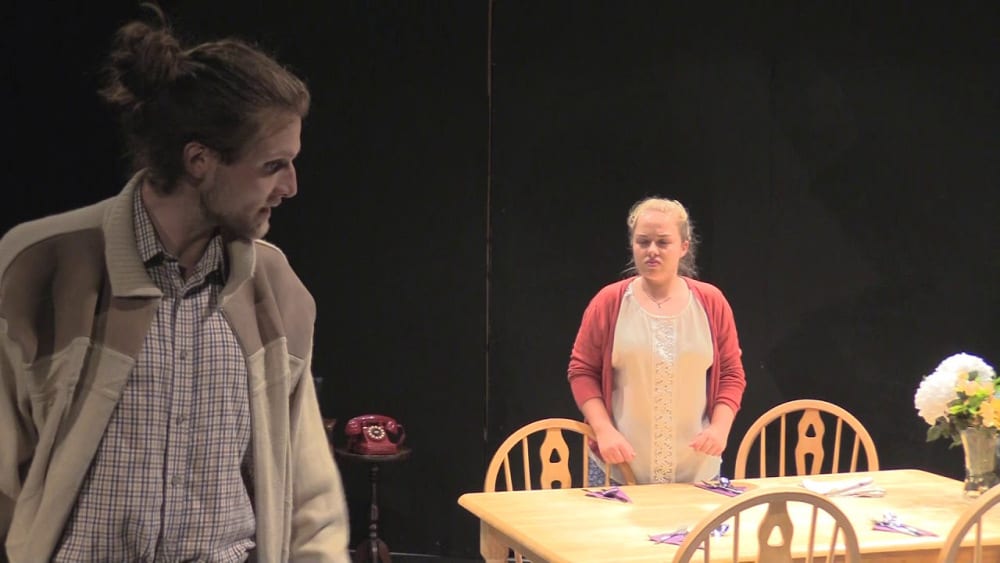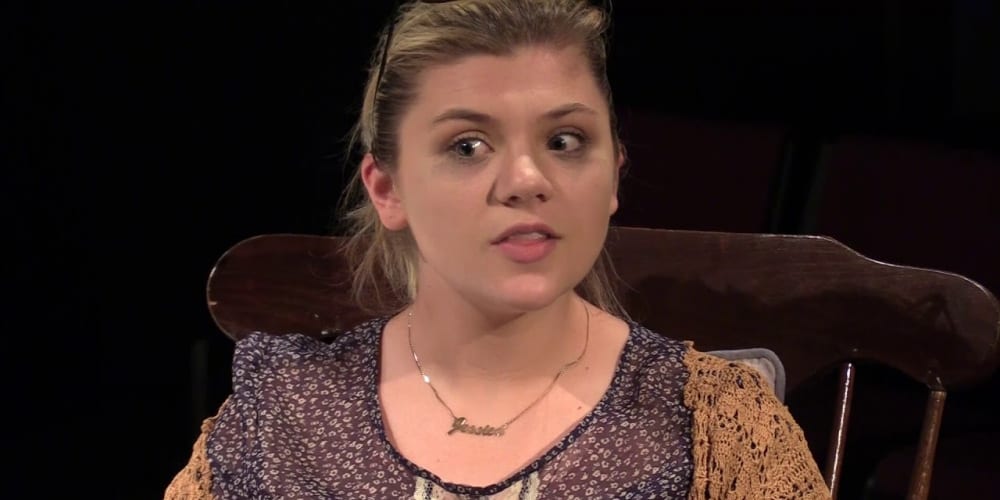Blue Heart is formed of two shorts by Caryl Churchill called Heart’s Desire and Blue Kettle.
The first, Heart’s Desire, is about a family of three geriatrics waiting for the return of a daughter from Australia. The relatively slim subject matter is explored in many different ways through a time loop. The family members – an aged mother, father and aunt – repeat the same material over and over again, complaining about the absence of the daughter and various other ailments in circularity. It’s akin to watching a TV screen as somebody fiddles with fast forward and rewind button on a video player.
The short not only tinkers with linearity but also alters reality – different hypothetical situations develop, sometimes bizarre and outlandish, like home invasion or a gaggle of boisterous schoolgirls trashing the house or even an ostrich entering the door rather than the expected human guest. Each different hypothesis is a window into the desires of each character, demonstrating how they’d like the scenario to unfurl, but it can also be the opposite of that by turning out disastrously. They are always jostling and renegotiating how they want the return to pan out. It’s an exercise in avant-garde weirdness where the show is Churchill’s creative sandbox.
 The Bathway Theatre Company, comprised of recent alumni studying drama at the University of Greenwich, do a good job at handling this unique format. Maisie is the charismatic, doddering old aunt who sits in a rocking chair, perusing the National Geographic and throwing out random thoughts every once in a while. She’s plonked in the middle of a quaint yet conservatively decorated dining room – gingham, flowers and all.
The Bathway Theatre Company, comprised of recent alumni studying drama at the University of Greenwich, do a good job at handling this unique format. Maisie is the charismatic, doddering old aunt who sits in a rocking chair, perusing the National Geographic and throwing out random thoughts every once in a while. She’s plonked in the middle of a quaint yet conservatively decorated dining room – gingham, flowers and all.
The trio occasionally skip through dialogue or make gestures silently – as if part of a corrupted videotape, showing in detail how their individual actions and responses are formed, those micro-movements of their faces, hands and bodies. As the play zooms through various possibilities surrounding this daughter’s return, much is explored socially through mundane as well as absurd interactions, with all this meandering ending in the anti-climactic yet sweet arrival of the daughter.
Blue Kettle is a short about a conman tricking women into thinking he’s their long-lost son, who they gave up for adoption at birth. As he dupes people, words and phrases are replaced with the words ‘blue’ and ‘kettle’ so that sentence structure disintegrates, making it harder to decipher what is going on. The conman, Derek, is silver-tongued and endearing, therefore capable of worming his way into vulnerable hearts. He ropes in his reluctant girlfriend, who eventually rumbles the charade, and then Derek also contributes to the money-grabbing scheme’s demise by making two of the ‘marks’ meet.
Both performances are certainly unique, but having two outlandish shows with different avant-garde conceits back-to-back is slighting taxing on the brain.

